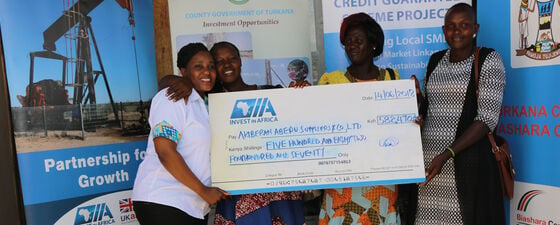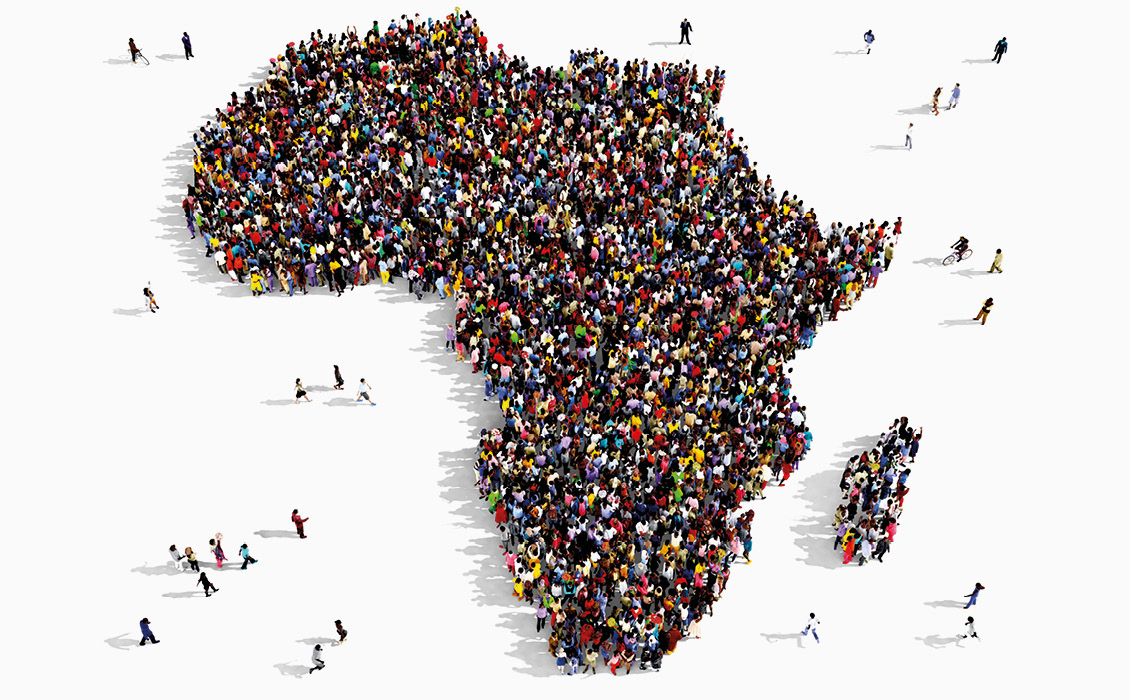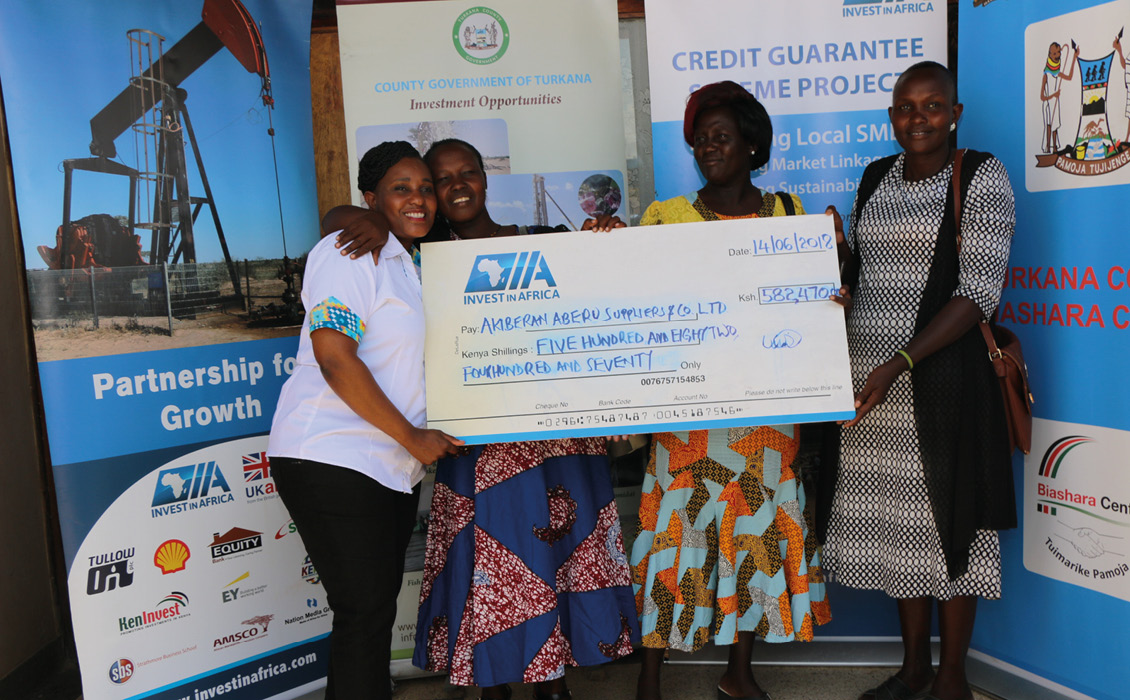Corporations working in Africa, including those in the oil and gas sector, are under regulatory and reputational pressure to create local jobs and opportunities. The more astute of them also look for ways to ensure this approach where possible complements the host government’s long-term national development plans.
This ‘nationalised’ or ‘local content’ approach also makes business sense; the more of your supply chain that is localised, the less exposed your operations are to customs delays, import taxes, exchange rate fluctuations – and Covid-19 has only emphasised the further risks of relying on international supply chains.
Meanwhile, African small to medium-size enterprises (SME) often lack skills and the business understanding required to allow them to compete in a new or international market. They need access to finance that will enable them to scale up their businesses, whilst reliable, fair and transparent opportunities and market information can be hard to find. Industry level skills and standards pose another significant barrier to local businesses, especially if foreign investors’ ethics, compliance and environment, health and safety standards are imposed, top down, without any explanation or support to local businesses to understand and attain these ways of working. How can this shared challenge be tackled?
Ambitious Vision
Invest in Africa (IIA) is a not-for-profit organisation with a simple yet ambitious vision: to create thriving African economies. It does this by helping African SMEs to grow through enabling them to gain better access to skills, markets and finance.
IIA is a collaboration that unites the private sector, donors and governments in order to pool needs and resources and thus create more timely, impactful and cost-efficient solutions than would be achieved if they each acted alone. Private sector partners include Tullow Oil, which was a founding partner, as well as other oil industry players such as Woodside, BP, Cairn, Kosmos, Baker Hughes and Shell, and also local and international law firms and banks and management consultants like EY, whilst donor funders include the African Development Bank, DFID and Mastercard Foundation. IIA believes that by continuously creating strategic partnerships with corporate associates, local enterprise, government bodies and donor agencies it will be able to create more value, identify new clients and markets and thus create prospering African economies. Coordination of objectives, time frames and priorities is often lacking between industry players and the public sector, which is why IIA’s model, which bridges the private and public sector, is so important to its success. An informed and consistent dialogue between these parties is also critical to building trust, avoiding tensions and delays that too often spiral out of control, to everyone’s detriment, especially the local businesses and economy who as a result are made to wait for the project go ahead.
The impact that IIA makes is measured by the number of jobs created, any improvement in competitiveness seen and the creation of new linkages to contracts and finance. Having started in 2014 initially focused on Ghana and Kenya, by 2019 IIA had activities in Senegal, Mauritania and Zambia and had helped connect SMEs in those countries to contracts worth over $165m and access over $5m worth of finance from banks to grow their businesses. To date it has created approximately 65,000 jobs, all delivered by local teams. IIA has an ambitious target of enabling the creation of 250,000 jobs and $1bn of contracts won by SMEs by 2027.
Finding Opportunities
These are ambitious plans – but how is this done in practice?
In order to improve access to markets, IIA has developed an online marketplace it calls the African Partner Pool, which allows SMEs to promote the products and services they can deliver and the standards they can deliver to. They can also access information on industry fundamentals, project briefings and other materials to help them start their journey into a new sector.
Organisations coming into Africa need to find local suppliers who will be able to work effectively with them, but local firms often find it difficult to access these opportunities, and the African Partner Pool makes it easier for big companies to find the right local suppliers to work with. Local businesses that register on it get the chance to display their products and services to both international and domestic buyers and they can also view live tender opportunities and register their interest in them. In order to give the local suppliers the best chance to succeed, the portal includes practical guides on how to work with big companies and what it takes to gain a competitive advantage.
The African Partner Pool was launched in Ghana in 2014 and Kenya in 2016, with plans to extend it to other markets in the near future. One company that has benefitted from joining it is Edge S&S, a Ghanaian sourcing and supply company, which was frustrated by little exposure to multinational companies operating in the country, with business limited to the ‘same old clients’. The only way they could hear of tenders from multinational companies was by scanning through newspapers to find if any had been advertised. Within a few weeks of signing onto the Portal, where they could see many tenders from lots of businesses all in one place, they had responded to a tender request from UT Bank and eventually won a supply contract from them. They have also been able to engage with a number of other companies, including Tullow Oil.
For the international company looking for local skills, the African Partner Pool provides access to businesses that have already been independently validated from across a range of sectors. The system allows them to search and filter by service and a number of other key criteria, which reduces the time and effort as well as cost required in finding the right supplier, especially for a new entrant to an African country. IIA also supplies a series of ‘Investor Guides’, available through its website, that can help an incoming company understand the economic, financial and operational risks they might face, or analyse the key issues in logistics and supply chains; in African businesses, the challenge is not big data, as in developed countries, but simply finding the data itself.
Access to Skills and Finance
Members of the African Partner Pool also have access to training and coaching through IIA’s Business Linkage Programme, which offers coaching and mentorship interventions that assist SMEs to scale up and fast track their businesses in order to become globally competitive – giving them not just technical but also ‘life skills’. The African Development Bank and the Dutch Development Bank have provided funding of $4m for this programme, which is delivered by IIA and its partners. Recently IIA has rolled out a Covid Survival Toolkit in partnership with Mastercard Foundation, available on IIA’s website for free to African SMEs. This toolkit features a series of live webinars with industry experts providing solutions to the biggest problems Covid has created for SMEs.
The aim of IIA’s model is to deliver training at a much reduced price in order to help African companies to develop to the stage at which they can win new clients, not just locally but also regionally and internationally, enable efficiencies to increase their profits, and gain access to finance and thus create new jobs. In order to benefit from this programme, companies must be at least two years old and have between 15 and 100 employees. A transparent procurement system is also important to ensure growth in African business, so companies applying to the Business Linkage Programme must be able to demonstrate efforts to be transparent and to embed governance standards.
Managers in one company that took advantage of this capacity building programme reported that they quickly saw clear positive results. Applying what they learnt, they changed the way they worked, found that scrutinising expenses more effectively ensured they got better value for money, and as a result salaries have risen by 50%, staff numbers have increased from twelve to eighteen, and they even acquired property which is being developed to serve as their new office and showroom.
Previously IIA ran a business accelerator programme that gave SMEs access to senior consultants from EY at a heavily subsidised rate to help them design and implement the key systems and structures that are necessary for greater efficiency and sustainable growth.
IIA also provides an Access to Finance Programme for African Partner Pool members which helps registered SMEs to develop structures and protocols that will help them reduce risk in order to encourage banks to advance them loans. So far, approximately US$5m of credit has been disbursed to SMEs through IIA’s banking partners.
Tracking Progress
To monitor the impact of these programmes IIA have developed a socio-economic impact model to assess and understand how its work benefits local economies, looking at three major aspects: value retained in the local economy, the number of jobs supported and the increase in contracts won. For every deal that goes through the African Partner Pool, the organisation captures the value and the sector involved in the tender and uses the socio-economic model to track the value retained in the country through taxes, profits and household income. It can also track jobs created in various sectors and ultimately calculate the overall impact on the economy through the purchasing of goods and services locally rather than from abroad.
Thus it can be seen that IIA has developed a coordinated industry-led solution, with public sector support and organised funding, which links multinationals and larger businesses with local verified SMEs, that is demand-led and supports national development, improves the investment climate and saves both parties time and money. The international companies have a cost-effective and efficient way of fulfilling their local content requirements that will leave a sustainable, impactful and scalable legacy, while the SMEs gain access to skills, contracts and finance to build long-term capacity for both themselves and their countries. A win-win situation! And with the African Free Trade Agreement (AfCFTA) – converting Africa’s 54 markets into one common, tariff-free trading block worth over $3 trillion – recently ratified, the opportunity for quality home-grown African businesses will only increase.










